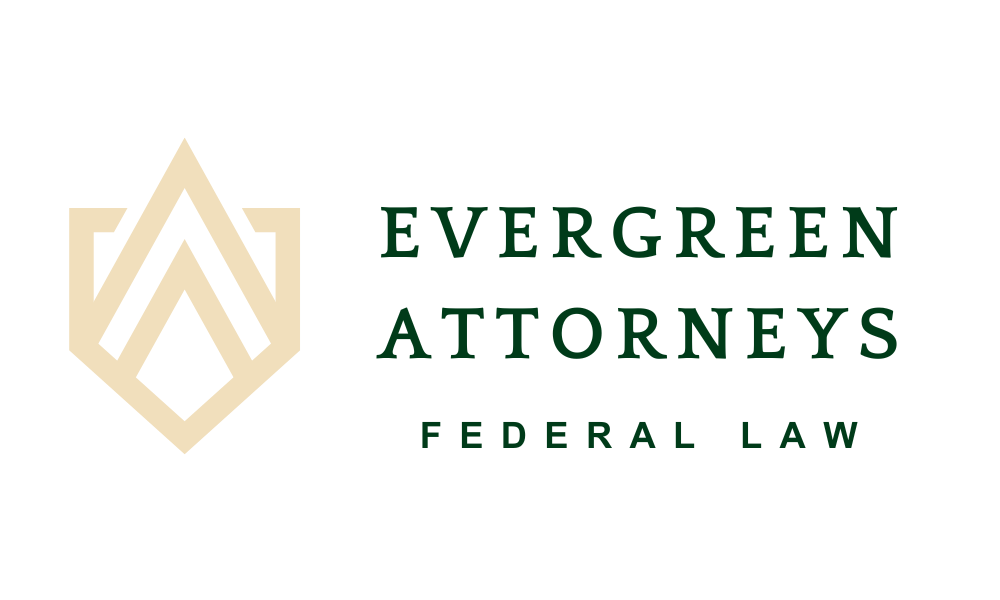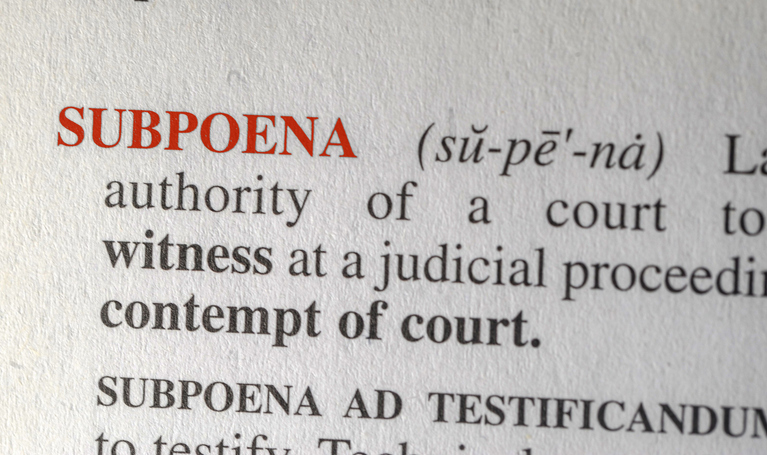Share
Share

If you’re searching for guidance from an experienced federal supervised release lawyer, understanding how courts handle violations of supervised release is critical, especially now that the U.S. Supreme Court has reshaped the legal landscape with its decision in Esteras v. United States.
The federal criminal defense team at Evergreen Attorneys know that federal supervised release revocations have incredibly high stakes. Most attorneys in the white collar defense world never set foot in a revocation hearing. Let alone help their federal criminal defense clients prepare and navigate federal supervised release issues in practice. Contact the experienced federal supervised release lawyers at Evergreen Attorneys today if you need hope in a bad spot.
Federal Supervised Release Law: A Turning Point
Federal supervised release is rarely in front of the U.S. Supreme Court. Heck, the Supreme Court rarely even addresses issues of federal criminal law these days. However, on June 20, 2025, the U.S. Supreme Court handed down a decision in Esteras v. United States which will impact all supervised release cases moving forward.
In Esteras v. United States, the U.S. Supreme Court delivered a significant ruling that narrows the scope of what federal judges may consider when deciding whether to revoke a defendant’s supervised release. This decision clarifies a long-uncertain question: Can judges consider retribution when revoking supervised release? The answer, according to the Court, is no. This ruling creates a subtle yet powerful shift for supervised release revocation cases within the legal sphere.
What Is Supervised Release?
Supervised release is a court-imposed term of community monitoring that follows a federal prison sentence. This release is separate from parole and intended to help a person reintegrate into society while remaining accountable to the court. If someone commits a supervised release violation, however, the court can hold a revocation hearing and potentially return them to prison.
Supervised release is governed by 18 U.S.C. § 3583, which outlines the conditions and consequences of noncompliance.
Overview of Esteras v. United States
Esteras v. United States is a U.S. Supreme Court case that addressed a fundamental question in federal sentencing law: when someone violates the terms of their supervised release, can a judge consider punishment, or retribution, when deciding whether to send them back to prison?
The case arose after Egardo Esteras was sentenced to prison for violating the conditions of his supervised release. During the revocation hearing, the district court considered the seriousness of Esteras’s original offense and cited the need to promote “respect for the law.” This rationale is rooted in the idea of retributive punishment. Esteras appealed, arguing that federal law does not permit courts to rely on those types of punitive considerations when deciding whether to revoke supervised release.
The legal issue centered on two statutes: 18 U.S.C. § 3553(a), which outlines the broad factors a court must consider at the original sentencing phase, and 18 U.S.C. § 3583(e), which governs whether, and on what basis, a court may revoke a defendant’s supervised release. Section 3553 includes punishment-related factors such as the need to reflect the seriousness of the offense and promote respect for the law. However, when Congress listed the specific § 3553 factors that apply to revocation decisions under § 3583(e), it notably excluded the retributive ones.
In a 7:2 opinion delivered by Justice Barrett, the Supreme Court held that this exclusion was intentional. The Court concluded that when Congress drafted the revocation statute, it deliberately omitted the punishment-focused provision, § 3553(a)(2)(A). As a result, judges may not consider retribution when deciding whether to revoke supervised release. Instead, their focus must remain on forward-looking goals such as deterring future violations, protecting the public, and supporting the defendant’s rehabilitation.
Justice Barrett wrote that the purpose of revocation is not to revisit the past or impose more time for the original crime. That punishment has already been served. Rather, the revocation process is meant to evaluate current behavior and determine whether continued supervision is appropriate or whether the defendant poses a risk to the community or needs additional correctional support.
Although the Supreme Court did not rule on whether Esteras’s revocation should be overturned entirely, it vacated the lower court’s decision and sent the case back for reconsideration under the clarified legal standard. In doing so, the Court set a binding national precedent: retributive sentencing goals have no place in supervised release revocation proceedings.
This decision provides critical guidance to judges, lawyers, and defendants alike. It draws a clear line between original sentencing and post-release enforcement, reinforcing the idea that federal supervised release is not an opportunity to revisit the past. Rather, it is a mechanism for managing risk and encouraging successful reintegration into society.
Federal Sentencing Factors Under 18 U.S.C. § 3583
Federal courts use the sentencing factors listed in 18 U.S.C. § 3583, when deciding how to sentence someone after a conviction. These include:
- The seriousness of offense
- Retribution
- Deterrence
- Public protection
- Rehabilitation
However, when it comes to revocation of supervised release, not all of these apply. Congress intentionally excluded § 3553(a)(2)(A) from the list of considerations under § 3583(e). That means a judge cannot revoke supervised release based on the idea that someone deserves more punishment for what they’ve done. So what can judges consider at a supervised release revocation hearing? During a supervised release revocation hearing, judges must focus on forward-looking goals. The recent SCOTUS decision outlines a clear boundary: Revocation is about managing risk and supporting rehabilitation, not punishing past behavior.
Supreme Court’s Reasoning in Esteras: Limiting Retributive Sentencing
Justice Barrett, writing for the majority, emphasized that Congress omitted retribution from § 3583(e), reasoning that if Congress had wanted judges to consider punishment when deciding whether to revoke release, it would have said so.
“The omission of § 3583(a)(2)(A) from § 3583(e) is not a mistake,” Barrett wrote. “It reflects Congress’s intent to limit the considerations during revocation.”
This ruling effectively limits the discretion of judges in revocation proceedings. It ensures that incarceration is not used as a second round of punishment after someone has already served their time.
Key Takeaways
- Narrower Judicial Discretion: “Punishment” at revocation is improper, thus providing supervised release defense attorneys with strong legal footing if a client is unfairly revoked for retribution’s sake.
- Consistent National Standard: Before Esteras, circuit courts were split. Some allowed retributive reasoning in revocations; others did not. The Supreme Court’s ruling in Esteras unifies the standard across all federal courts.
- Greater Emphasis on Rehabilitation: With punitive reasons off the table, judges must focus more heavily on rehabilitative and risk reduction factors. This opens the door for defense counsel to propose constructive alternatives to incarceration.
Justice Sotomayor’s Warning on Backdoor Retribution
Justice Sotomayor, joined by Justice Jackson, wrote a concurring opinion urging judges to resist disguising retribution as deterrence. She warned that courts might still be tempted to punish defendants under the guise of forward-looking goals.
“Courts must be vigilant,” she wrote, “to ensure that retributive rationales are not smuggled in through the backdoor.”
This underscores the importance of having an expert supervised release lawyer who can challenge improper arguments in court.
Dissenting Views: Judicial Flexibility vs. Statutory Limits
Justice Alito and Justice Gorsuch dissented, arguing that the Court’s decision unnecessarily restricts trial judges. They expressed concern that by excluding retribution, the Court is interfering with common-sense judicial decision-making. This highlights the tension between judicial discretion and statutory limits, a frequent theme in federal sentencing jurisprudence.
The Court’s Core Holding: Retribution Off the Table
The Supreme Court did not order Mr. Esteras’s release or make a final judgement on his case. Instead, it:
- Vacated the Sixth Circuit’s decision
- Sent the case back for reconsideration under the new standard
- Directed the lower court to apply § 3583(e) without referencing § 3553(a)(2)(A)
This outcome reaffirms that principle that revocation must be based on present risk and future needs, not past wrongdoing.
How the Esteras Decision Affects Defendants Facing Supervised Release Violations
If you or someone you care about is facing a supervised release violation, this decision provides powerful new arguments for your defense team. Judges must now:
- Focus on treatment, deterrence, and community safety
- Avoid discussing “deserved punishment” or “making up for a light sentence”
- Refrain from treating revocation as a second sentencing
These restrictions offer meaningful protections, but only if your legal team knows how to use them.
Working With a Federal Supervised Release Lawyer
If you’re facing a potential revocation of supervised release, working with an experienced federal supervised release lawyer is essential. These cases are governed by complex federal statutes like 18 U.S.C. § 3583 and recent Supreme Court decisions such as Esteras v. United States have further clarified the legal boundaries judges must follow during a supervised release violation hearing.
A knowledgeable federal criminal defense attorney can review your case to ensure the court is applying the correct legal standard. In light of Esteras, judges are no longer allowed to consider retributive sentencing goals such as “just punishment” or promoting “respect for the law” when deciding whether to revoke supervised release. Your lawyer can challenge any attempt to introduce these impermissible factors and instead focus the court’s attention on lawful considerations including deterrence, public safety, and rehabilitation, as outlined in 18 U.S.C. § 3553.
Beyond legal arguments, a skilled federal supervised release law attorney can advocate for alternatives to incarceration. These may include continued supervision, mental health or substance abuse treatment, vocational training, or community-based services. In cases where supervised release has already been revoked based on improper reasoning, your attorney may also file a direct appeal or a motion for reconsideration to seek a reduced sentence or early release.
Ultimately, choosing the right federal criminal lawyer for supervised release violations can dramatically affect the outcome of your case. With the Supreme Court’s ruling in Esteras creating a clearer framework, your legal team must be prepared to hold courts to those standards, ensuring that revocation decisions are grounded in the law, not in hindsight punishment. If you’re searching for a supervised release attorney who understands this evolving area of law and can defend your rights with precision and strategy, our firm is here to help.
The Future of Supervised Release Revocation
Esteras v. United States is more than a technical clarification. This SCOTUS case creates a subtle yet powerful shift in supervised release sentencing. By drawing a clear line between lawful revocation considerations and impermissible retributive motives, the Court has reaffirmed that supervised release is not an extension of punishment. Instead, it is a distinct legal process focused on rehabilitation, deterrence, and public safety. As federal courts begin to apply this new standard, individuals facing a supervised release violation now have stronger protections against unjust incarceration. But those protections are only meaningful when properly asserted.
That’s why it’s critical to work with a seasoned federal supervised release lawyer who understands the nuances of post-Esteras revocation proceedings. As the legal landscape shifts, having the right advocate can ensure your rights are respected, your future is defended, and the court applies the law as Congress intended.
Federal Supervised Release Lawyers at Evergreen Attorneys
Contact the federal supervised release lawyers at Evergreen Attorney today. Call us at (303) 948-1489 or fill out a contact form on our website to get in touch with our experienced federal defense team today.
Zachary Newland
Zachary Newland is an attorney, author, aspiring BBQ connoisseur, and mediocre skier. Zachary's law practice is focused on federal criminal defense, federal appellate advocacy including post-conviction remedies, civil rights litigation, and complex trial work. Zach lives in Evergreen, Colorado with his family. You can reach Zach at [email protected] to discuss your case or call him directly at 303-948-1489.
STAY IN THE LOOP













